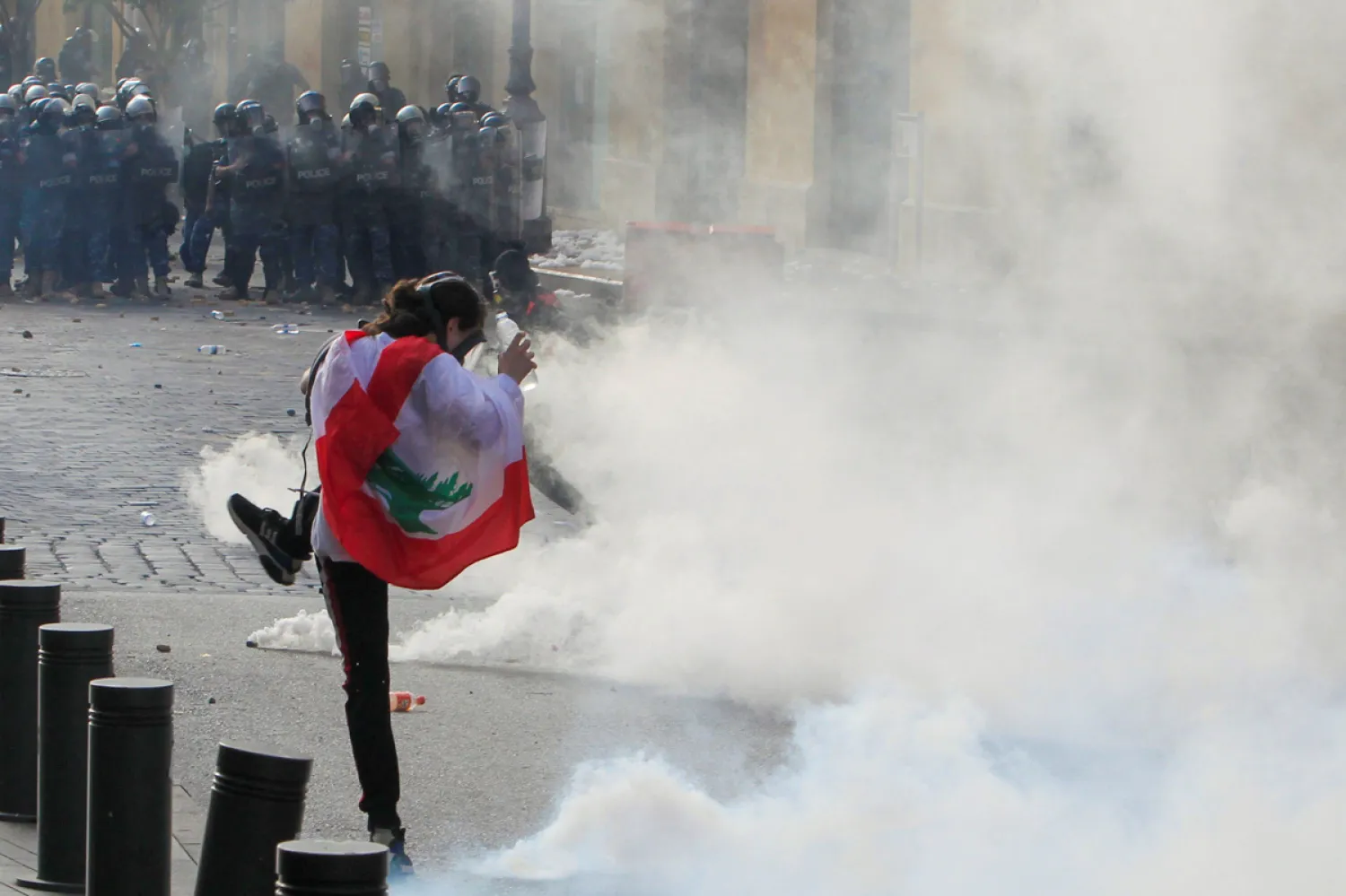Lebanon averted over the weekend sectarian strife that would have pitted some neighborhoods of West Beirut against the southern suburbs of the capital, a Hezbollah stronghold.
Saturday witnessed anti-government protests that soon turned sectarian when “undisciplined” demonstrators, estimated in the hundreds, began making provocative religious and sectarian chants. That resulted in scuffles between the protesters and supporters of the Shiite Hezbollah party and Amal Movement, of parliament Speaker Nabih Berri.
The situation could have spiraled out of control without the quick thinking of Islamic and political leaders, who soon denounced the protesters. The army and Internal Security Forces were also quick to intervene by deploying along hotspots and preventing further scuffles between the rivals.
Anti-government protests that had erupted in Lebanon in October 2019 had been calling for political change and holding to account officials who had led the country to its worst economic crisis in decades. New over the weekend’s rallies were demands for the implementation of United Nations Security Council resolution 1559 and the disarmament of Hezbollah, the only party that did not lay down its weapons after the 1975-90 Lebanese civil war.
Saturday’s political demands were a departure from the anti-government demonstrators’ typical calls for fighting corruption and improving living conditions. The rallies soon turned violent with the “undisciplined” elements vandalizing public and private property and scuffling with Hezbollah and Amal supporters. What started as a protest in downtown Beirut soon spread to the Corniche al-Mazraa district, where battle lines were drawn with the Barbour area, where Berri used to live before he was elected parliament speaker.
Ultimately, Saturday’s unrest damaged the anti-government protests, which were originally hailed for transcending confessional divides. The sectarian nature of the weekend’s developments demands that the protesters review and reassess their movement, which has been veered off its original course after it was “infiltrated” by political groups that have scores to settle with Hezbollah and its supporters.
The protesters were not the only side to blame for the unrest. The “undisciplined” supporters of Hezbollah and Amal, who had streamed into downtown Beirut to confront the protesters from their nearby Khandaq al-Ghamiq stronghold, are also to blame for allowing rival rallies to gather and direct messages against the party.
These “undisciplined” supporters have in turn embarrassed their Hezbollah and Amal leaderships, prompting Berri and head of the Higher Islamic Shiite Council to intervene and avert the strife. Dar al-Fatwa, former Prime Minister Saad Hariri and other leaderships also took action to stem the violence.
President to blame
A prominent opposition source told Asharq Al-Awsat that it was “unnecessary” to “sectarianize” the dispute over Hezbollah’s weapons, seeing as it is a point of contention among many political parties regardless of their sectarian affiliations.
It said that Sunni leaderships, starting with Hariri, are keen on averting sectarian strife and blocking attempts to return Sunni-Shiite ties back to square one.
Most importantly, the source wondered at the role of the presidency in preventing strife and avoiding fueling tensions among Sunni circles. Such tensions cannot be tackled with media and sensational statements, but with tangible steps.
Whoever truly wants to safeguard coexistence and ensure the rise of a civil state does not form a government that keeps out a main Sunni component in the country, it remarked. It noted that even though current PM Hassan Diab heads a government of technocrats, the ministers are really controlled by the political and sectarian leaders who appointed them.
President Michel Aoun is to blame for failing to ensure fair representation in cabinet, said the source. He noted how the president soon abandoned his call for the formation of a technopolitical government, which he had imposed on Hariri to accept his naming as PM, in favor of the formation of a technocrat cabinet, which Hariri had called for, but headed by Diab.
The “Shiite duo” of Hezbollah and Amal could have objected to this, but accepted it for yet undisclosed reasons, continued the source.
Whoever wants to contain the tensions should not support campaigns that target the political performance of the Hariri family during the past three decades and does not appoint a prime minister – Diab – who barely has any political credentials, stressed the source.
Even though the Shiite duo will address the sectarian tensions with Sunni leaderships, this does not exempt Aoun, in his capacity as president, from assuming his responsibilities, especially since he was the one who proposed the current government.
Instead of forming a national unity government, Aoun approved a cabinet that suits Hezbollah and its allies, namely the Free Patriotic Movement, which he founded and is now headed by his son-in-law MP Gebran Bassil, but is incapable of handling challenges.









